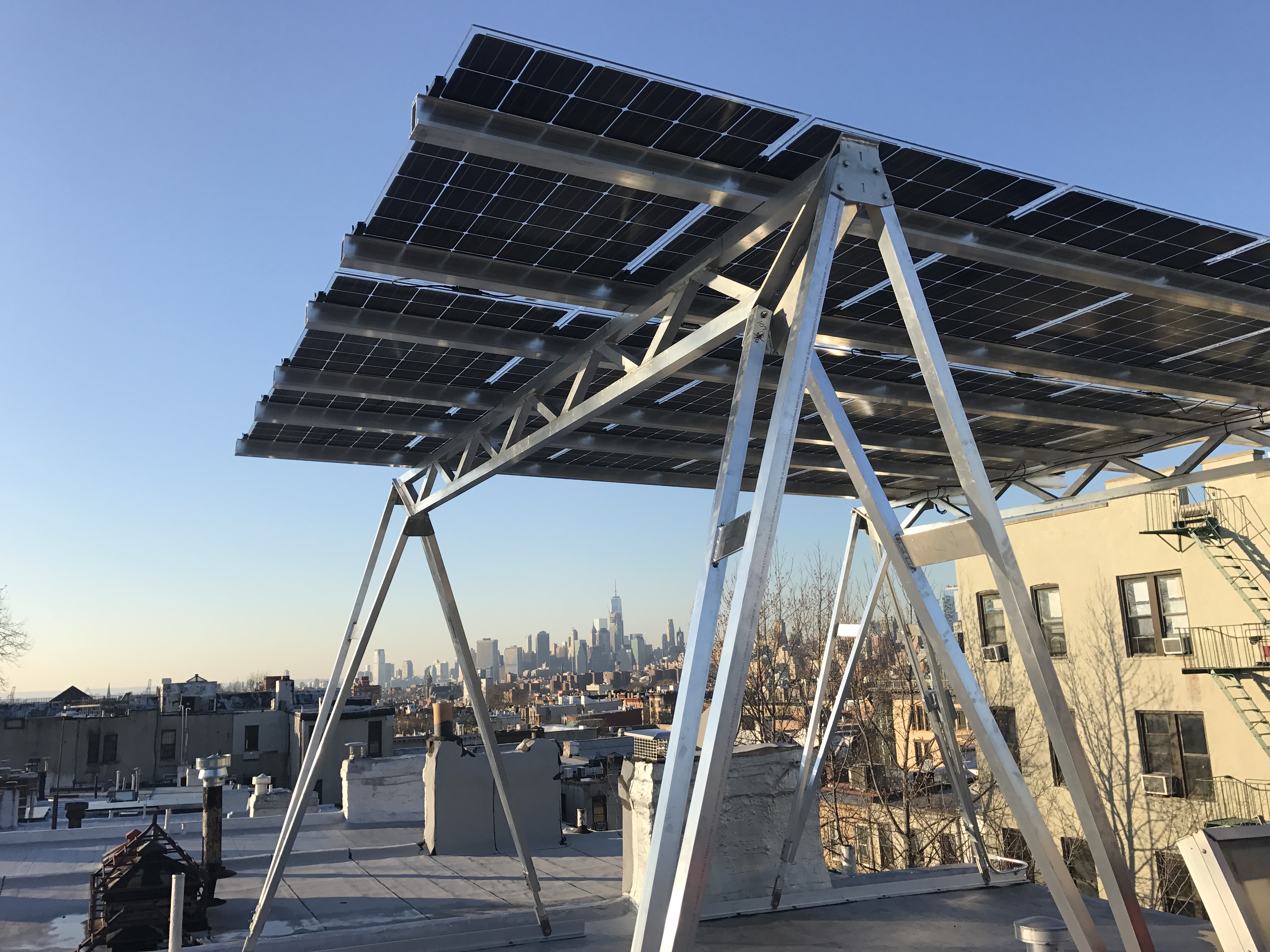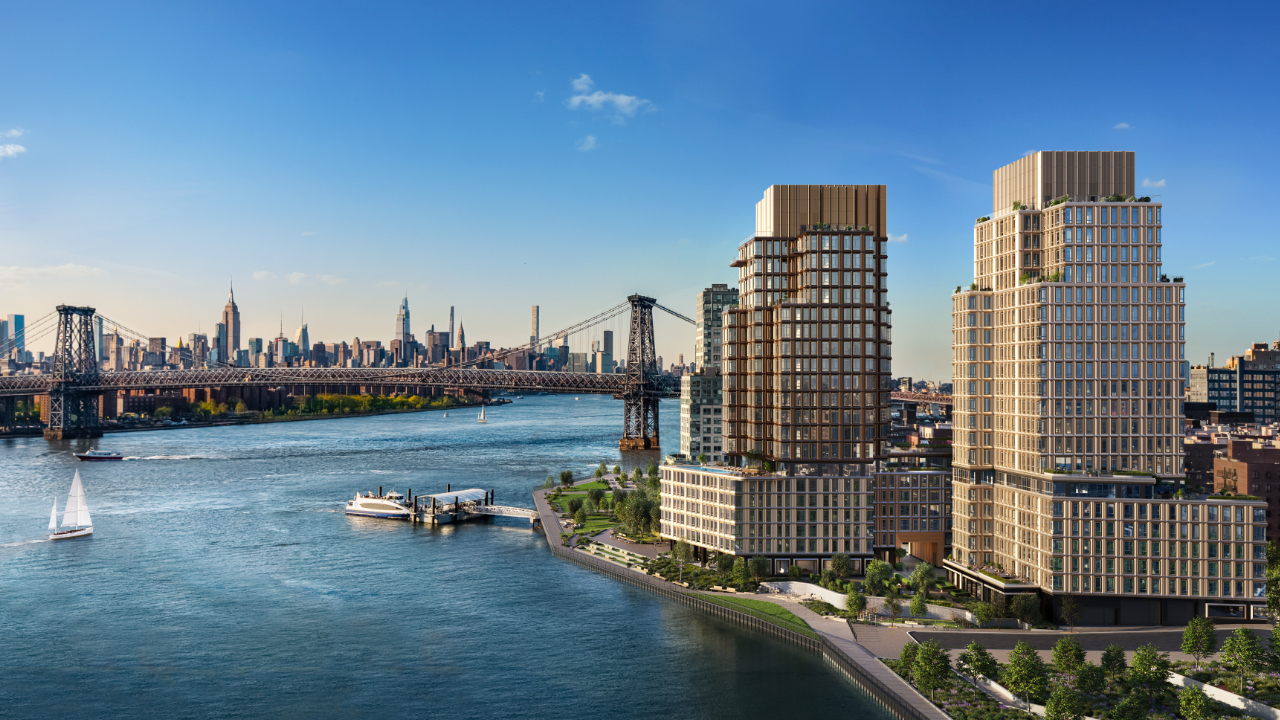How 'Bout That Brooklyn Market!
That’ll teach us to read beyond the headline! Turns out that yesterday’s New York Times article “Market Strong for Apartments in Manhattan,” which revealed that prices on the island to the west had risen between 6 and 12 percent last quarter versus the last quarter of 2006, contained even more bullish data for our fair…


That’ll teach us to read beyond the headline! Turns out that yesterday’s New York Times article “Market Strong for Apartments in Manhattan,” which revealed that prices on the island to the west had risen between 6 and 12 percent last quarter versus the last quarter of 2006, contained even more bullish data for our fair borough. According to Corcoran, average prices were 22% higher in the first quarter of 2007 than they were in the period a year earlier; the mean sale price rose from $514,000 to $628,000. The more inventory that we’ve been getting, the more inventory we’ve been selling, said Corcoran veep Frank Percesepe. By comparison, the year-over-year trend in Manhattan was slightly down. We wonder what Q1 2007 looked like versus Q4 2006.
Market Strong for Apartments in Manhattan [NY Times]





To say there are no speculators and non-owner-occupied properties in NYC is rather shortsighted. Population virtually unchanged. Inventory skyrocketed.
“huge housing bust”
can you please show me the facts to back this up?
we’ve seen a moderation and a correction in prices across the country, but a HUGE bust??? i like to think i’m pretty well informed and i don’t call a 10% drop in some of the most overheated markets a HUGE housing bust.
especially when there was a 200% increase in the previous 5 years.
i think it’s more the other way around in many aspects or is shifting as more and more people flock to cities and more urban areas.
i think the u.s. economy needs new york much more than new york needs the rest. this is evidenced by the fact that while the new york real estate market has been slightly affected by the national economy, it has remained largely on its own path.
i don’t understand this though because i travel to london quite a bit and it is the same situation over there that the country as a whole experienced a housing boom while london stays FAR ahead of the rest of the country in terms of the real estate market.
no one there cries that london is about to tank or bust. they accept the fact that london is the most sought after area of the u.k. and thus has that reflected in it’s prices.
i really don’t see much difference here in new york.
It doesn’t really matter that New York is really, really different from Detroit, although it is. The entire country just saw a huge housing bubble, and began, in the last year, to see a huge housing bust. The same factors that drove the housing bubble (speculation, lax lending, low interest rates) were/are present in NYC too.
Yes, NYC is a great place to live. But its economy, and thus its jobs, and thus its real estate, are all tied to the national economy. Which is in for a beating, thanks in large part to the housing bubble.
The comparison one could make between NYC and Detroit or those other hell holes is that a fair number of people are living way beyond their means. Or you really have suddenly become the poorest person on the block.
i also think it’s funny when you compare new york to these other places because if you can make the comparison so easily then it makes little sense why you’d choose to live here over other places in the country since you seemingly don’t value what new york has to offer.
if you’re looking for a cheaper place to live, you can go anywhere else in the country besides here and find something suitable.
i guess i love new york too much to make even the slightest comparison to detroit or tampa.
i’m sorry but i totally disagree with you 1:38. comparing new york to detroit? totally absurd. comparing it to las vegas, florida…only slightly less absurd.
you are speaking about markets that were driven up by speculators who didn’t even live in the condos they bought.
this is simply not the case in new york. most people who buy are purchasing a home for themselves either full time or part time.
the detroit comparison is rather ignorant since it’s a city with one of the “worst of” everything in the entire country. unemployment, crime, home ownership, nothing on the horizon to turn it around with the dismantling of the automotive industry there.
we aren’t even talking about apples and oranges here. it’s more like bananas and kiwis.
“It’s different here,” all right, 1:19. Those are the magic words. It was a “different” era 5 minutes before the dot-com meltdown, too.
Have you not read what’s going on in Florida, California and Vegas, not to mention Detroit where formerly 200K houses are going for 30K at auction? We’ve got the same money and the same mania here, and then some.
Maybe you can’t buy a co-op with an ARM and no money down, but you CAN score a flipped condo or townhouse, right?
take this for what it’s worth but it’s a comment i read on another blog yesterday discussing why new york is different now and might help explain the surge in prices. i actually agree with this assessment to a large extent…
“Part of the market psychology includes a strong favorable view of city living.
A generation ago, much of New York’s middle and some of its upper class were departing for the suburbs. Today, many empty nesters are returning, which, together with the city’s strong attraction for young college grads, artists, media workers and other members of the sought after “knowledge economy,” have revitalized life in town.
In addition, many of the middle class New Yorkers who fled the city did so to find affordable homes in safe communities with good schools. The near suburbs, however, have filled up and that’s reflected in home prices; there is no longer a huge savings there, according to Miller.
Crime is no longer an issue in most of Manhattan; New York is one of the safest big cities in the United States and the neighborhoods where most co-ops and condos are sold tend to be even safer.
As for schools, Census Bureau figures, as reported in the New York Times recently, revealed a 32 percent increase in young children in Manhattan since 2000. Most of these families don’t plan to leave when the kids reach school age. Many will undoubtedly enroll in private schools, but many parents are sending the kids to public schools as well, displaying a confidence mostly absent a decade ago.”